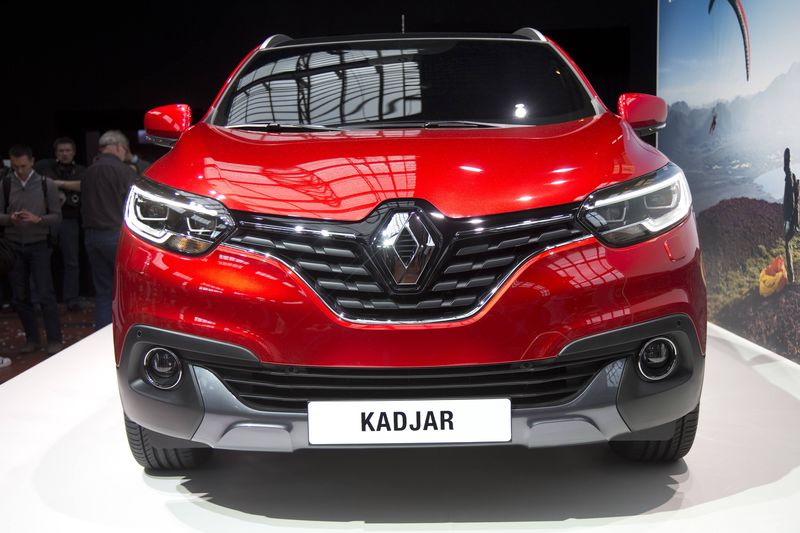By Laurence Frost
PARIS (Reuters) - French carmaker Renault (PA:RENA) launched its first compact SUV on Monday, aiming to emulate Japanese partner Nissan's (T:7201) success in harnessing strong demand for the vehicles.
Unveiling the Kadjar model at an event north of Paris, Renault Chief Executive Carlos Ghosn said it was "positioned very clearly as a crossover", with large wheels and high ground clearance.
Demand for crossover SUVs, which combine spacious, offroad styling with conventional car architecture, has risen over the past decade. But Renault is only now completing its offering with a vehicle in the compact bracket.
Domestic rival PSA Peugeot Citroen (PA:PEUP) has also been slow to respond, launching its 2008 mini-SUV in 2013. Before introducing its competing Captur subcompact the same year, Renault's only crossover was the larger Koleos imported from South Korea and sold in limited volumes.
"It's the vehicle category that's really doing well," said Francois Roudier, spokesman for France's CCFA auto industry association. "This is the model that Renault was missing."
While Europe's car registrations slumped 18 percent in the decade from 2004 to 12.85 million last year, sales of Kadjar-sized SUVs rose fourfold to more than 1.5 million, according to IHS Automotive.
IHS, a leading industry forecaster, expects sales of compact crossovers to increase further as a share of Europe's recovering market and top 2 million in 2020. It predicts 121,000 deliveries for the new Renault next year - placing it third in Europe behind Nissan's Qashqai and Volkswagen's (DE:VOWG_p) Tiguan.
Crossovers earn fatter profits because their prices are typically 10-20 percent higher than the sedans they are based on. Renault's entry-level Clio is priced at 13,500 euros (10,164 pounds), with its Captur sibling starting at 16,300 euros.
The Kadjar, to be assembled in Spain alongside the Megane sedan, shares its underlying architecture with the Qashqai, which launched in 2006.
Deliveries of the new vehicle will begin in Europe and Africa this year, with Chinese production and sales to follow in 2016. Pricing and production targets were not disclosed.
Renault and its 43.4 percent-owned Japanese alliance partner are rolling out new vehicles based on shared technical platforms and parts.
